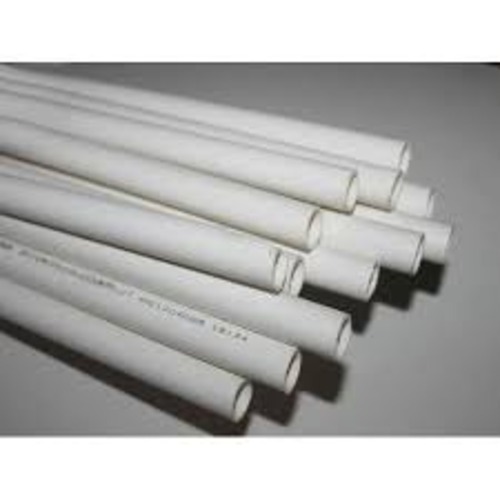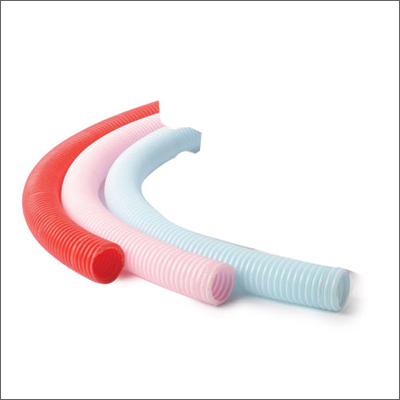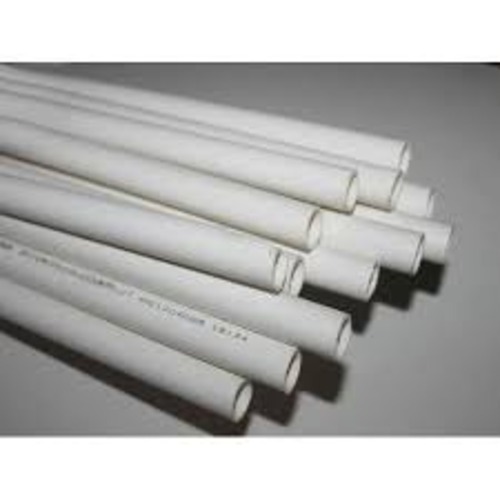PVC Pipe
Product Details:
PVC Pipe Price And Quantity
- 1000 Meter
- 22.00 - 200.00 INR/Meter
- 22 INR/Meter
PVC Pipe Trade Information
- Vadodara
- Cash Advance (CA) Cash in Advance (CID) Cheque
- 10000 Meter Per Month
- 3 Days
- Standard Packaging
- All India
Product Description
PVC (Polyvinyl Chloride) pipes are a type of plastic pipe widely used in plumbing, electrical conduit systems, drainage, irrigation, and various other applications. PVC pipes are known for being lightweight, durable, and cost-effective, with excellent resistance to corrosion, chemicals, and weathering. Below are the key components and features that make up PVC pipes:
PVC Pipe Manufacturer in India
PVC Pipe Manufacturer in Gujarat
PVC Pipe Manufacturer in Vadodara
PVC Pipe Supplier in India
PVC Pipe Supplier in Gujarat
PVC Pipe Supplier in Vadodara
1. PVC Material
- The primary material used in the production of PVC pipes is Polyvinyl Chloride (PVC). This is a synthetic polymer made from the polymerization of vinyl chloride monomers.
- PVC is a thermoplastic material, which means it can be softened by heat and molded into shape and then hardened once cooled.
2. Pipe Structure
- Smooth Inner Surface: PVC pipes have a smooth internal surface that reduces friction, allowing water and other fluids to flow more easily. This also prevents the buildup of sediments or deposits inside the pipe.
- Rigid and Sturdy: While PVC pipes are lightweight, they are rigid and sturdy enough to handle the pressure and force exerted by the fluid inside the pipe.
- Wall Thickness: The wall thickness varies depending on the pipe™s intended application (e.g., pressure-rated pipes vs. non-pressure pipes). This is typically referred to as schedule (e.g., Schedule 40, Schedule 80) or by the pressure rating (e.g., 200 PSI, 300 PSI).
3. Pipe Types and Grades
- Schedule 40: This is the most common type of PVC pipe, used in low-pressure applications such as residential plumbing and irrigation. It has a thinner wall.
- Schedule 80: This pipe has a thicker wall and is used for higher-pressure applications. It is often used in industrial and chemical applications.
- Schedule 120: This is used for more demanding environments, providing even greater strength and pressure resistance.
- DWV (Drain, Waste, and Vent): These pipes are specifically designed for drainage and waste water systems and do not handle pressurized liquids.
- CPVC (Chlorinated Polyvinyl Chloride): A modified version of PVC that is resistant to higher temperatures and is used for hot water systems.
- PVC-O (Oriented PVC): This type of PVC is strengthened by stretching the material to increase strength and reduce weight.
4. Color
- White PVC: This is the most common and traditional color for pipes, mainly used in plumbing and drainage systems.
- Gray PVC: Often used for electrical conduit systems and some industrial applications due to its resistance to UV rays and corrosion.
- Clear or Translucent PVC: Some pipes are made clear for applications where visual inspection of the contents is important (e.g., laboratory or water filtration systems).
- Other Colors: PVC pipes can also be found in other colors depending on the industry or application, such as green for drainage systems or black for use in outdoor or underground conditions.
5. Additives and Modifiers
PVC pipes may contain various additives and plasticizers to improve their properties, such as:
- UV Stabilizers: These are used to protect the pipe from degradation due to sunlight exposure, especially for outdoor or exposed installations.
- Impact Modifiers: Additives that make the pipe more resistant to impact and cracking.
- Lubricants: Help in the manufacturing process, making it easier to extrude the pipes.
- Flame Retardants: In some cases, flame-retardant materials are added for safety, particularly in industrial and electrical applications.
6. Fittings and Joints
- Couplings: Used to connect two pieces of PVC pipe together in a straight line.
- Elbows: Allow for changes in direction (typically in 45 or 90 angles).
- Tees and Crosses: Used to create branch connections.
- Adapters: Used to connect PVC pipes to other materials (such as metal pipes).
- Flanges: For creating tight, leak-proof connections in systems that require a flange connection.
- Unions: Facilitate easy disconnection and maintenance of plumbing systems.
- Solvent Cement: PVC pipes are often joined using a solvent cement that chemically bonds the surfaces of the pipe and fitting, creating a strong, leak-proof connection.
7. Pressure Ratings
- Pressure-Rated PVC Pipes: These pipes are designed to carry pressurized fluids and gases. They are commonly rated for specific pressure levels, such as 200 PSI (pounds per square inch), 300 PSI, or higher, depending on the application.
- Non-Pressure PVC Pipes: These are primarily used for gravity-fed drainage systems, where the fluid moves due to gravity, not pressure. They typically don't have a pressure rating.
8. Manufacturing Process
- Extrusion: PVC pipes are made by extrusion, where PVC pellets are heated and forced through a mold to form the pipe. The pipe is then cooled and cut to the desired length.
- Fusion Bonding: For some applications, fusion bonding (such as butt welding) is used to join pipes or fittings together.
9. Pipe Sizes
- PVC pipes come in various sizes, with common diameters ranging from inch to 12 inches or larger, depending on the application.
- Pipes can also be available in lengths ranging from 10 feet to 20 feet, though custom lengths can be made as well.
10. Applications
- Plumbing: For carrying cold water and wastewater in residential and commercial buildings.
- Irrigation: Used in agriculture for water distribution systems.
- Electrical Conduit: PVC pipes are used as protective conduits for wires and cables in both indoor and outdoor installations.
- Drainage and Sewer Systems: DWV (Drain, Waste, and Vent) pipes are used for drainage and venting in plumbing systems.
- Stormwater and Sewerage: For stormwater drains and sewage systems in municipal infrastructure.
- Chemical Handling: Some specially formulated PVC pipes are used to carry chemicals and corrosive substances in industrial settings.
- Cable Ducting: Used in telecommunications and data cabling for underground cable installation.
- Water Treatment: PVC pipes are also widely used in water treatment plants for conveying treated water.
11. Advantages of PVC Pipes
- Durable and Long-Lasting: PVC pipes have a long lifespan, often exceeding 50 years under normal conditions.
- Lightweight: They are easy to handle and install, especially compared to metal pipes.
- Corrosion Resistant: PVC is not susceptible to rust or corrosion, making it ideal for water and wastewater systems.
- Cost-Effective: PVC pipes are relatively inexpensive compared to other materials like copper, steel, or iron.
- Chemical Resistance: PVC pipes are resistant to many chemicals, making them suitable for various industrial and chemical transport applications.
- Low Maintenance: The smooth surface reduces friction, minimizing the buildup of debris or deposits.
12. Disadvantages of PVC Pipes
- Temperature Sensitivity: PVC pipes are generally not recommended for high-temperature applications (typically above 140F or 60C). CPVC is a better choice for hot water systems.
- Brittleness: PVC can become brittle in extremely cold temperatures, potentially leading to cracks.
- Environmental Impact: PVC production can have environmental impacts, and while it is recyclable, it is not biodegradable.
Conclusion:
PVC pipes are an essential part of modern infrastructure due to their strength, versatility, and affordability. They are widely used across various industries for plumbing, drainage, electrical conduit systems, and more. Understanding the materials, applications, and types of PVC pipes ensures the correct selection for any given project, ensuring safety, efficiency, and longevity of the system.






 Send Inquiry
Send Inquiry Send SMS
Send SMS